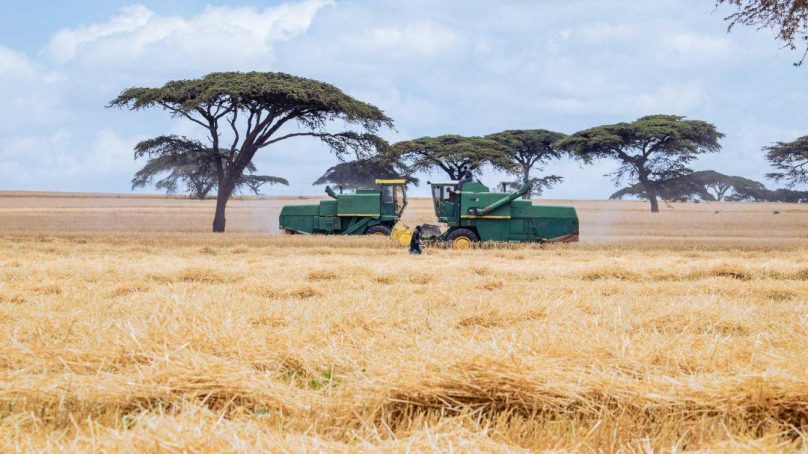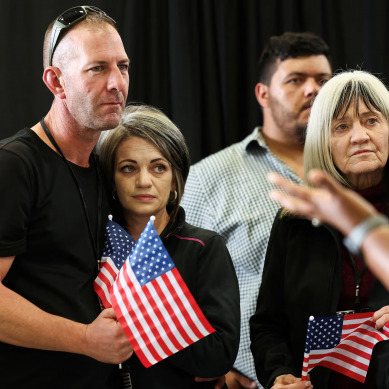
As the first sunlight rays of the day hit Olchorro in Narok County, the sprawling golden wheat fields offers a panoramic view of the plains that sometimes are at the centre of ownership controversy.
Standing quietly among them is Miriam Sang, a small-scale farmer whose hands tell the story of seasons gone by of harvests, the struggles and hope. For Miriam and many others, these fields are more than just land to farm; they are the base of their dreams and a way to help the country change for the better.
Kenya uses around 2.2 to 2.4 million metric tonnes of wheat every year. But the country only grows less than 10 per cent of this amount. Because of that, Kenya has to bring in most of its wheat from other countries like Russia, Ukraine, and Argentina.
While these imports have helped fill the gap in the past, they also put the country at risk. When things go wrong in the world, like during the pandemics, supply chain problems raise prices for flour and bread.
That makes it difficult for Kenyan families to afford basic food. But in the middle of these challenges is a big opportunity and Narok is a good place to start.
In 2023, only Narok County alone produced more than 130,000 metric tonnes of wheat. That’s over 40 per cent of all the wheat grown in Kenya. The area has good soil and lots of land, and it has a long history of wheat farming. But the full potential of that land is not being used.
According to government data, between July 2024 and March 2025, Kenyan farmers collected over 1.7 million bags of wheat, each weighing 90kg. However, nearly 322,000 bags, mostly from Upper Narok, remained unsold even as millers bought wheat from other countries.
This shows how important it is to rethink how Kenya moves and uses its wheat. The government is already taking big steps.
The ministry of agriculture, with help from the Agriculture and Food Authority (AFA), has lined up plans to support local wheat farming. These include giving out cheap fertiliser and seeds, helping with farm machines, better soil testing and using digital tools to connect farmers with market information and help.
A big part of the plan is the Wheat Purchase Scheme (WPS) a policy that makes millers buy local wheat first at set prices before buying from other countries. In return, millers pay a lower import duty, from 35 per cent to 10 per cent. This encourages buying locally while keeping the wheat supply steady.
There’s also a push to grow more wheat in new areas like Laikipia, Samburu, Marsabit and parts of Uasin Gishu. By improving irrigation, roads, storage and the overall system for selling wheat, the government hopes to increase local wheat production from its current 8 per cent to more than 40 per cent of total demand by 2027.
For farmers like Miriam, this change is very personal. With better prices, she can afford good farming supplies and pay for her children’s school. With better machines, she can grow more without relying on a lot of people. For her kids, this means a future that’s not about struggle but about chances. And it doesn’t end with the farm. Every bag of wheat harvested helps the whole economy. Boda boda drivers earn money by moving the grain.
Millers and bakers make products that feed cities and towns. Small businesses and young groups form to meet the growing local need. Schools and hospitals may soon buy flour from nearby mills, keeping the whole system local and strong. This isn’t just a story about wheat. It’s about pride, being able to take care of oneself, and fairness in the economy. The wheat fields of Narok show that Kenya has the ability to feed itself not just with food, but with jobs, growth, and shared success.
The real question now is not whether Kenya can grow its own wheat but how quickly we can make it happen, connect the parts, and use the knowledge farmers already have: that the land under our feet can support not only life, but lasting livelihoods.
- A Tell Media / KNA report / By Hassan Adan Ali







